
Tarnów: The Hidden Gem of Poland
Tarnów is often referred to as the 'Pearl of the Renaissance' due to its well-preserved architecture and rich history. This charming city is located in southeastern Poland and offers a perfect blend of cultural heritage and modern attractions. As you stroll through the Old Town, you'll feel like you've stepped back in time, with its cobbled streets, colorful tenement houses, and historic landmarks. One of the city's highlights is the Tarnów Cathedral, an impressive Gothic structure that dates back to the 14th century. The interior is equally captivating, with stunning stained glass windows and intricate carvings. Nearby, the Renaissance Town Hall stands proudly in the Market Square, boasting an elegant facade and a majestic clock tower that offers panoramic views of the city. Tarnów is also home to a number of museums that cater to a variety of interests. The Ethnographic Museum provides a fascinating insight into the region's folk culture, while the District Museum showcases an extensive collection of art and artifacts. For those interested in Jewish history, the Jewish Heritage Trail will take you through significant sites, including the Bimah of the former Great Synagogue and the Jewish Cemetery, one of the oldest in Poland. Nature lovers will appreciate the city's green spaces, such as the Strzelecki Park, which is perfect for a leisurely walk or a picnic. For a more active adventure, head to the nearby Ciężkowice-Rożnów Landscape Park, where you can explore scenic hiking trails and enjoy breathtaking views. Tarnów's vibrant cultural scene is another reason to visit. The city hosts numerous festivals throughout the year, including the Tarnów Film Award and the International Carpathian Festival of Children’s Regional Ensembles. Whether you're a history buff, an art enthusiast, or simply looking for a picturesque destination, Tarnów has something to offer everyone.
Local tips in Tarnow
- Visit the Old Town early in the morning to avoid crowds and enjoy the serene atmosphere.
- Try local delicacies like oscypek cheese and żurek soup at traditional Polish restaurants.
- Check the schedule for the Tarnów Film Award and other local festivals to enhance your visit.
- Wear comfortable shoes as the cobblestone streets can be challenging to navigate.
- Consider taking a guided tour to learn about the city's rich Jewish heritage and historical landmarks.
Tarnów: The Hidden Gem of Poland
Tarnów is often referred to as the 'Pearl of the Renaissance' due to its well-preserved architecture and rich history. This charming city is located in southeastern Poland and offers a perfect blend of cultural heritage and modern attractions. As you stroll through the Old Town, you'll feel like you've stepped back in time, with its cobbled streets, colorful tenement houses, and historic landmarks. One of the city's highlights is the Tarnów Cathedral, an impressive Gothic structure that dates back to the 14th century. The interior is equally captivating, with stunning stained glass windows and intricate carvings. Nearby, the Renaissance Town Hall stands proudly in the Market Square, boasting an elegant facade and a majestic clock tower that offers panoramic views of the city. Tarnów is also home to a number of museums that cater to a variety of interests. The Ethnographic Museum provides a fascinating insight into the region's folk culture, while the District Museum showcases an extensive collection of art and artifacts. For those interested in Jewish history, the Jewish Heritage Trail will take you through significant sites, including the Bimah of the former Great Synagogue and the Jewish Cemetery, one of the oldest in Poland. Nature lovers will appreciate the city's green spaces, such as the Strzelecki Park, which is perfect for a leisurely walk or a picnic. For a more active adventure, head to the nearby Ciężkowice-Rożnów Landscape Park, where you can explore scenic hiking trails and enjoy breathtaking views. Tarnów's vibrant cultural scene is another reason to visit. The city hosts numerous festivals throughout the year, including the Tarnów Film Award and the International Carpathian Festival of Children’s Regional Ensembles. Whether you're a history buff, an art enthusiast, or simply looking for a picturesque destination, Tarnów has something to offer everyone.
When is the best time to go to Tarnow?
Iconic landmarks you can’t miss
Strzelecki Park
Explore the natural beauty and vibrant culture of Strzelecki Park, Tarnów's premier destination for relaxation and recreation.
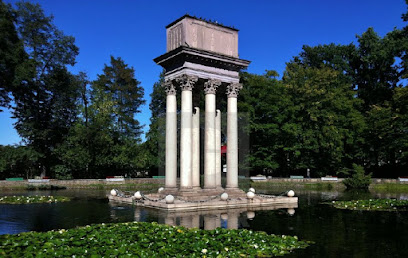
Tarnowski Castle Ruins
Uncover the timeless beauty and rich history at the Tarnowski Castle Ruins, a captivating landmark in the heart of Tarnów, Poland.
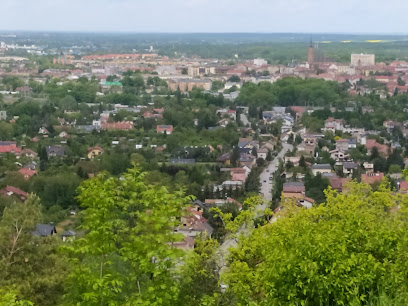
Rynek Główny w Tarnowie
Explore the historical Rynek Główny in Tarnów - a beautiful blend of culture, architecture, and local charm awaits you.
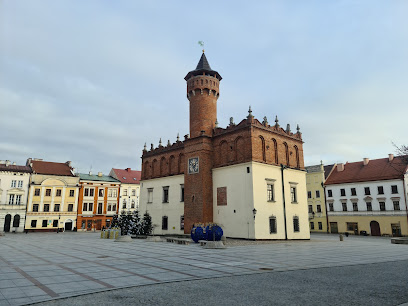
Cathedral Church. Holy Family
Discover the architectural splendor and spiritual serenity of the Cathedral Church of the Holy Family in Tarnów, a true gem of Gothic design.
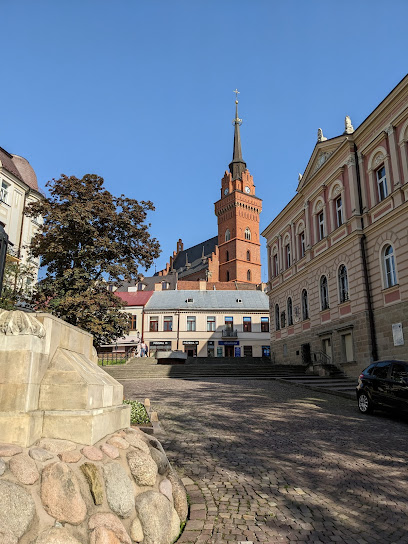
Mausoleum of Murat Pasha
Discover the serene beauty and historical significance of the Mausoleum of Murat Pasha in Tarnów, a hidden gem for culture and history enthusiasts.
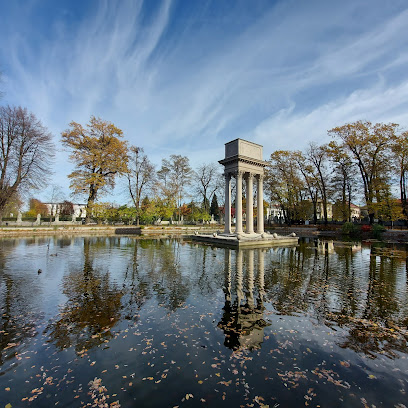
Muzeum Ratusz – Galeria Sztuki Dawnej, Oddział Muzeum Ziemi Tarnowskiej (dawniej Muzeum Okręgowe w Tarnowie)
Discover the rich cultural heritage of Tarnów at Muzeum Ratusz, featuring a diverse collection of art, history, and military memorabilia.
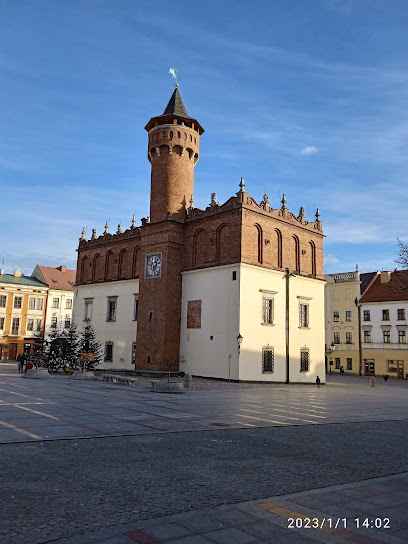
Lasek Lipie
Experience tranquility and natural beauty at Lasek Lipie, Tarnów's premier state park for families and nature enthusiasts.
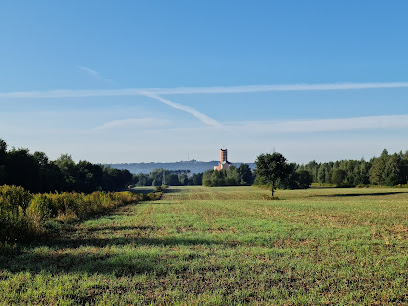
Fountain - Solar System
Experience the enchanting Fountain - Solar System in Tarnów, where art meets astronomy in a delightful celebration of our cosmic neighborhood.
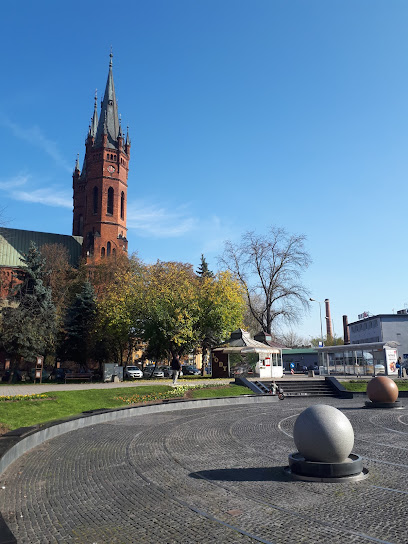
Brama Seklerska w Tarnowie
Explore the stunning Seklerska Gate in Tarnów, a historic gem reflecting the city’s rich heritage and architectural beauty, perfect for history enthusiasts and travelers alike.
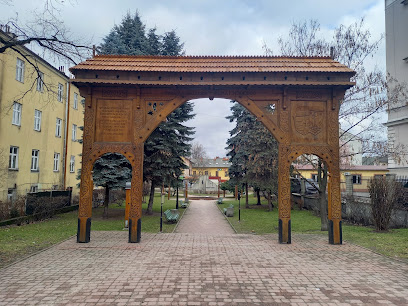
Bima Old Synagogue
Discover Tarnów’s Bima Old Synagogue, a historical gem reflecting the rich Jewish heritage and architectural beauty of this charming Polish city.
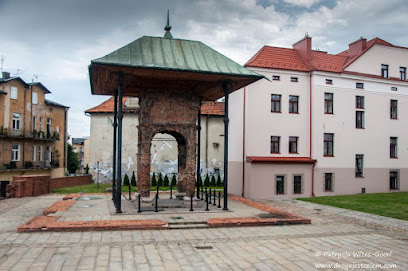
Plac Ofiar Stalinizmu
Discover the serene beauty and historical significance of Plac Ofiar Stalinizmu, a memorial park honoring the victims of Stalinism in Tarnów.
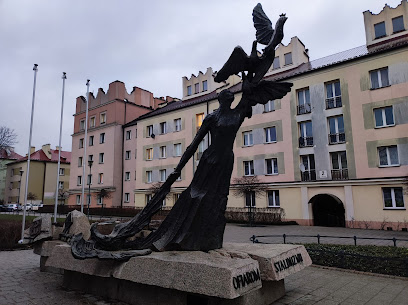
BWA Tarnów
Explore BWA Tarnów, a contemporary art gallery in Tarnów, Poland, showcasing dynamic exhibitions and cultural events that inspire and engage.
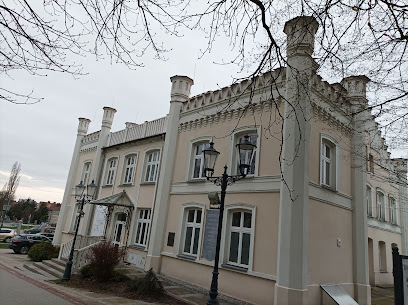
Muzeum Ziemi Tarnowskiej (dawniej Muzeum Okręgowe w Tarnowie)
Explore the rich history and culture of Tarnów at Muzeum Ziemi Tarnowskiej, a fascinating museum showcasing regional art and artifacts.
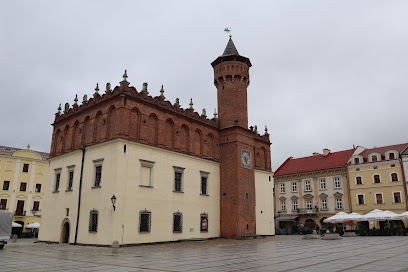
Muzeum Diecezjalne w Tarnowie
Explore the rich history and stunning art collections at Muzeum Diecezjalne w Tarnowie, a cultural gem in the heart of Tarnów, Poland.
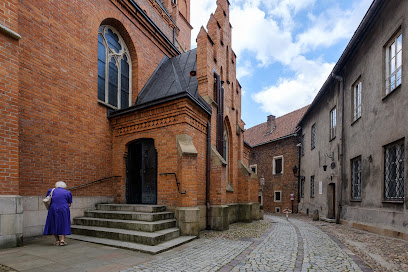
Ławeczka Poetów w Tarnowie
Explore the poetic charm of Ławeczka Poetów in Tarnów, a serene tourist attraction celebrating the beauty of literature and nature.
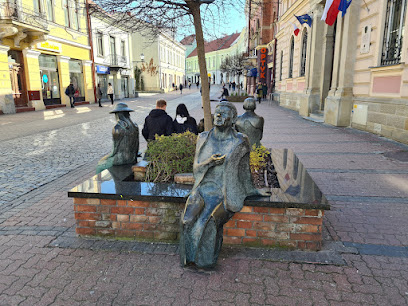
Unmissable attractions to see
Bochnia Salt Mine
Explore the Bochnia Salt Mine, a UNESCO World Heritage site, and uncover the rich history and stunning underground wonders of Poland's oldest salt mine.
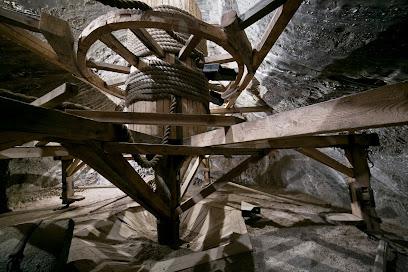
Dom Malarek w Zalipiu
Explore the vibrant folk art of Zalipie at Dom Malarek, a unique museum showcasing the village's famous painted houses and rich cultural heritage.
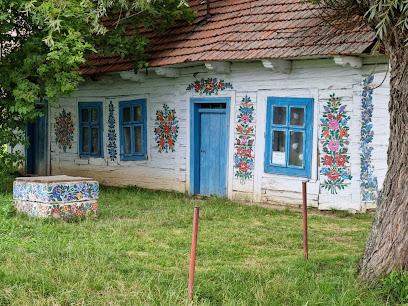
Zagroda Felicji Curyłowej w Zalipiu, Filia Muzeum Etnograficznego w Tarnowie
Discover the vibrant folk art and cultural heritage of Poland at the Zagroda Felicji Curyłowej Museum in Zalipiu, where tradition comes to life.

Sądecki Ethnographic Park
Discover the vibrant culture and history of the Sądecka region at the stunning Sądecki Ethnographic Park, an open-air museum in Nowy Sącz.
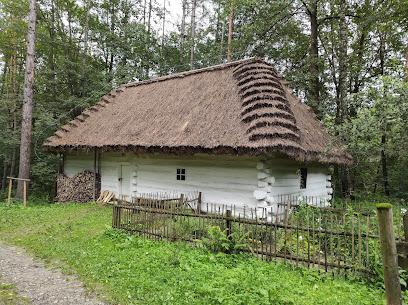
Park Piaskówka
Experience the beauty and tranquility of Park Piaskówka in Tarnów—your perfect escape into nature with lush landscapes and serene surroundings.
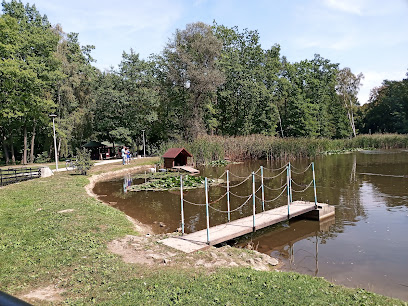
Mausoleum of Murat Pasha
Explore the captivating Mausoleum of Murat Pasha in Tarnów, where history and tranquility blend in a serene memorial park setting.
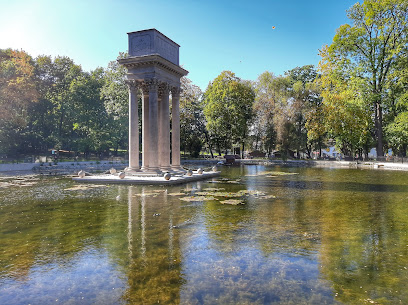
Saints Philip and James Church, Sękowa
Discover the stunning Saints Philip and James Church in Sękowa, a UNESCO World Heritage Site showcasing exquisite wooden architecture and rich history.
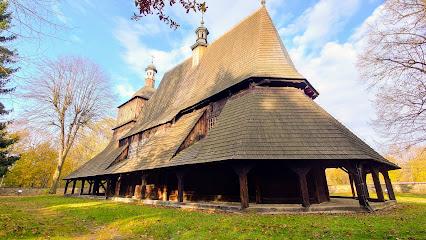
Brama Seklerska w Tarnowie
Explore Brama Seklerska in Tarnów, a stunning historical gateway that showcases the city's rich heritage and architectural beauty.
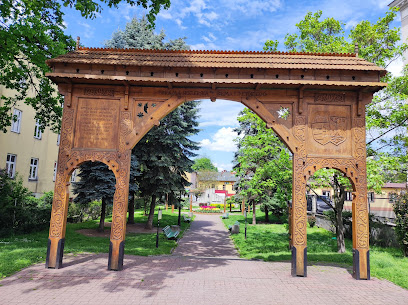
Papugarnia Amazonia Tarnów
Immerse yourself in the colorful world of exotic birds at Papugarnia Amazonia in Tarnów, a unique family-friendly attraction with interactive experiences.
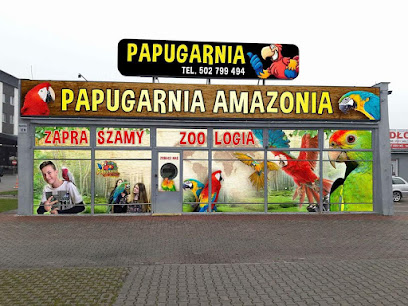
Muzeum Etnograficzne, Oddział Muzeum Ziemi Tarnowskiej (dawniej Muzeum Okręgowe w Tarnowie)
Explore the rich cultural heritage of Tarnów at the Muzeum Etnograficzne, where history and tradition come alive through engaging exhibits.
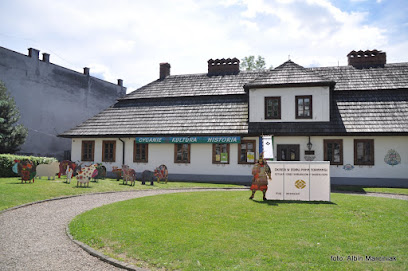
Roman Catholic Parish of St. Michael the Archangel
Explore the Roman Catholic Parish of St. Michael the Archangel in Binarowa, Poland - a UNESCO World Heritage Site showcasing stunning wooden architecture.
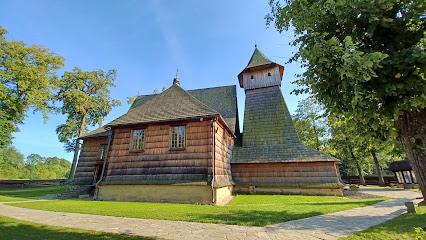
Stadnina Koni - Koński oGródek
Experience the beauty of equestrian culture at Stadnina Koni - Koński Ogródek in Gródek nad Dunajcem, Poland, surrounded by stunning natural landscapes.
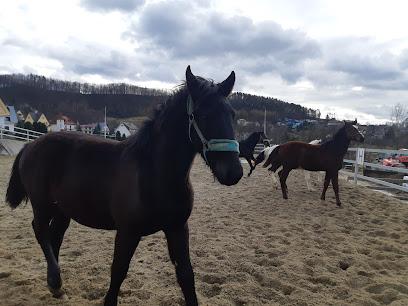
Muzeum Diecezjalne w Tarnowie
Discover the rich ecclesiastical heritage of Poland at Muzeum Diecezjalne w Tarnowie, a cultural gem in the heart of Tarnów.
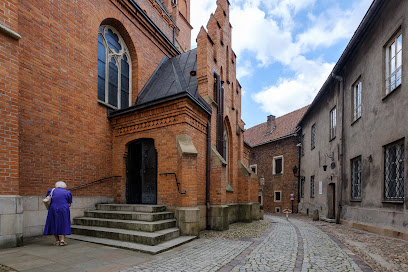
Muzeum Historii Tarnowa i Regionu, Oddział Muzeum Ziemi Tarnowskiej (dawniej Muzeum Okręgowe w Tarnowie)
Explore the fascinating past of Tarnów at Muzeum Historii Tarnowa i Regionu, where history comes alive through engaging exhibits and captivating stories.
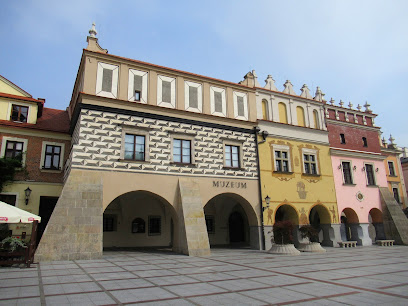
Kościół św. Leonarda
Discover the tranquil beauty and rich history of Kościół św. Leonarda in Lipnica Dolna, a UNESCO World Heritage wooden church.
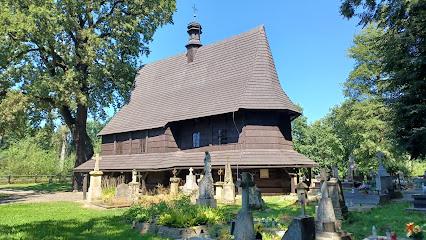
Essential places to dine
Czarny Sezam
Discover authentic Pan Asian cuisine at Czarny Sezam in Tarnów – where flavors from Thailand, Vietnam, and Japan come together in perfect harmony.
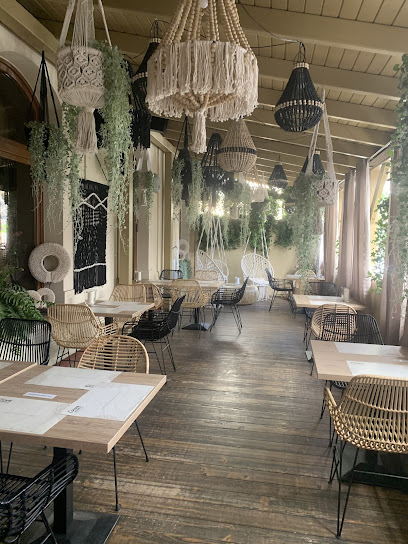
Kawiarnia Sofa
Discover Kawiarnia Sofa in Tarnów: where delicious breakfasts meet cozy ambiance in Poland's charming café culture.
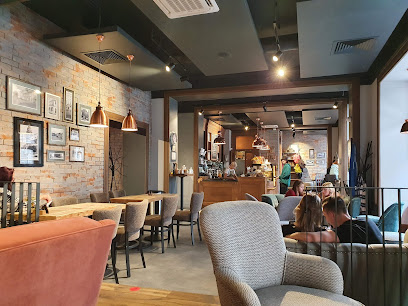
Restauracja Soprano
Experience the best of Italian cuisine at Restauracja Soprano in Tarnów, where authentic flavors meet exceptional service.
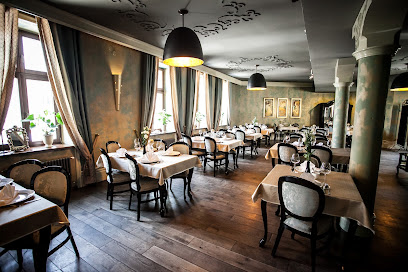
El Paso
Discover the vibrant flavors of Mexico at El Paso, Tarnów's premier destination for authentic tortas and delightful dining experiences.
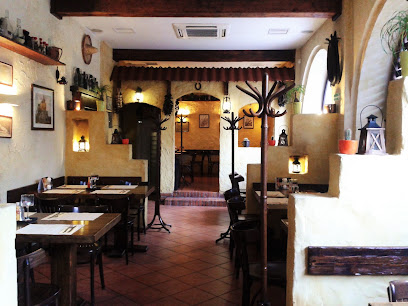
Restauracja Tatrzańska
Experience authentic Polish cuisine at Restauracja Tatrzańska in Tarnów – where tradition meets flavor in every bite.
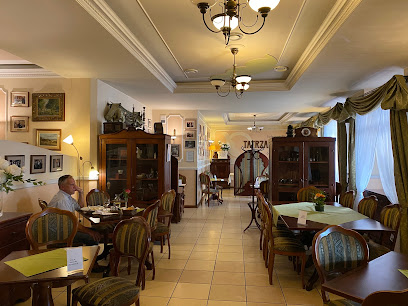
Piwiarnia Warka
Discover authentic Polish cuisine and local brews at Piwiarnia Warka, Tarnów's beloved beer hall offering vibrant atmosphere and rich flavors.
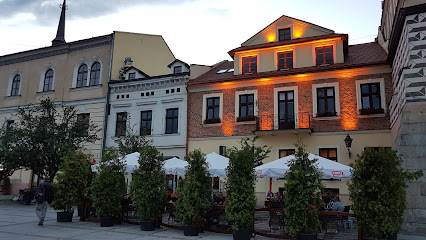
Hotel Tarnovia
Discover the charm of Hotel Tarnovia: an exquisite restaurant and hotel experience in the heart of Tarnów offering delightful cuisine and comfortable stays.

Pub Śródmieście
Discover the heart of Tarnów's culinary scene at Pub Śródmieście – where craft beer meets diverse flavors in a welcoming atmosphere.
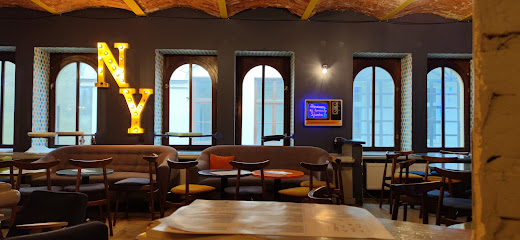
Gospoda Rycerska
Discover the flavors of Poland and Italy at Gospoda Rycerska in Tarnów - where culinary tradition meets modern taste.
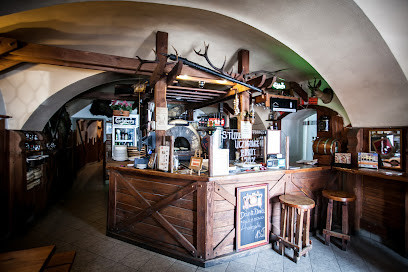
Restauracja Obsesja Smaku
Discover the rich flavors of Polish cuisine at Restauracja Obsesja Smaku in Tarnów, where culinary artistry meets warm hospitality.
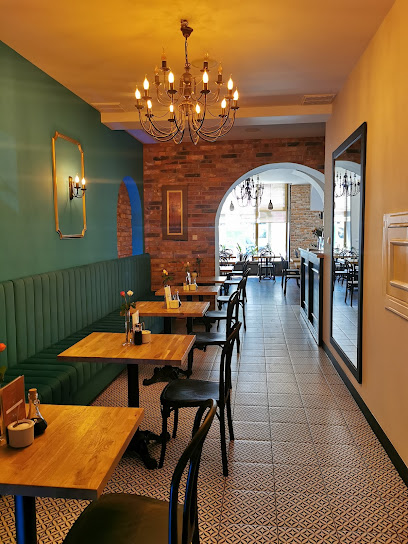
Hotel i Restauracja Podzamcze
Experience the best of Polish cuisine at Hotel i Restauracja Podzamcze in Tarnów - where local flavors meet international flair.
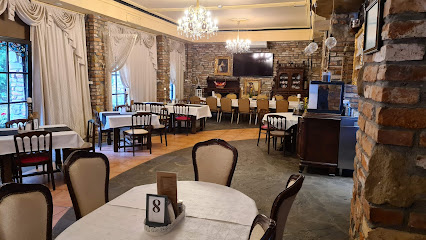
Thai Cooking
Discover authentic Thai cuisine in Tarnów at Thai Cooking - where every dish is a flavorful journey through Southeast Asia.
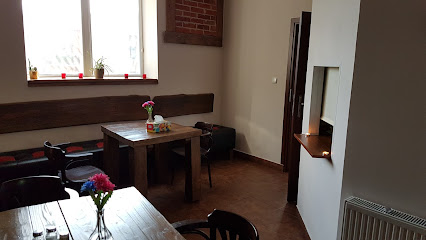
Pół na Pół Tarnów - włoska restauracja
Experience authentic Italian flavors in Tarnów at Pół na Pół – where tradition meets taste in every dish.
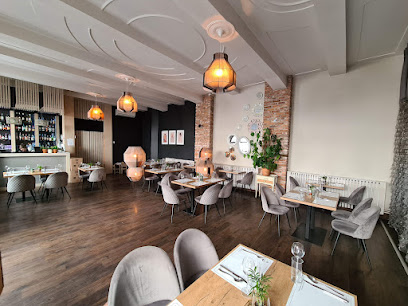
Pyza
Discover the heart of Polish cuisine at Pyza in Tarnów - where tradition meets flavor in every dish.
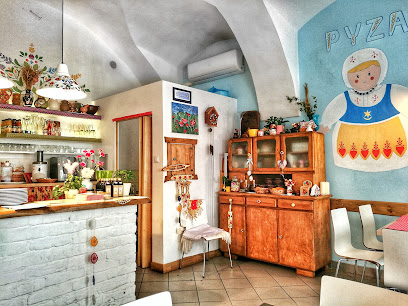
Irish Pub
Discover Tarnów's vibrant brewpub scene at the Irish Pub – where authentic cuisine meets local charm amidst live music and great craft beers.
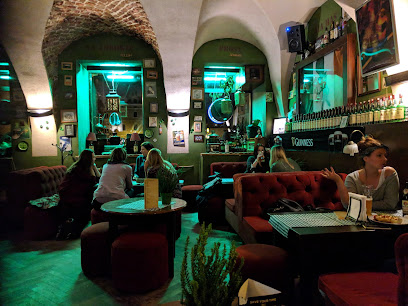
Markets, malls and hidden boutiques
Gemini Park Tarnów
Explore an exceptional shopping and entertainment experience at Gemini Park Tarnów, the premier shopping mall in Tarnów, Poland.
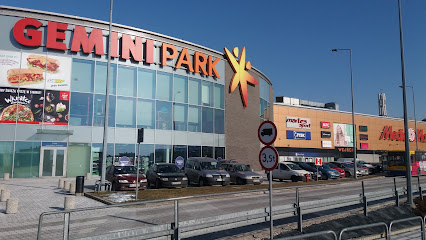
Galeria Tarnovia
Experience Tarnów's retail paradise at Galeria Tarnovia, where shopping, dining, and entertainment blend seamlessly in a vibrant atmosphere.
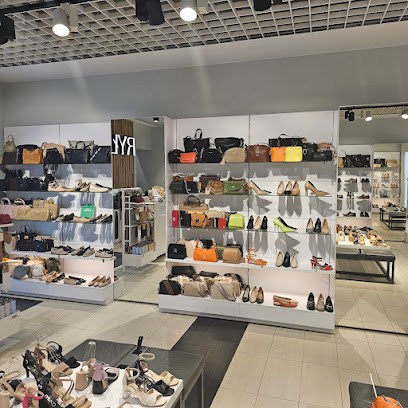
Centrum Handlowe Świt
Discover shopping bliss at Centrum Handlowe Świt in Tarnów, Poland - a thriving mall with fashion, food, and fun for every visitor.
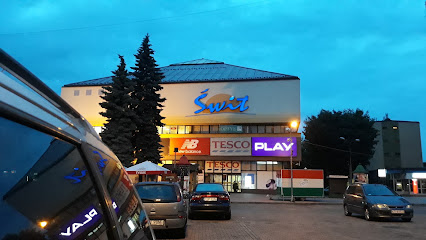
Zenit Dom Handlowy Sp. o.o.
Discover the vibrant shopping experience at Zenit Dom Handlowy in Tarnów, Poland—offering everything from groceries to fashion!
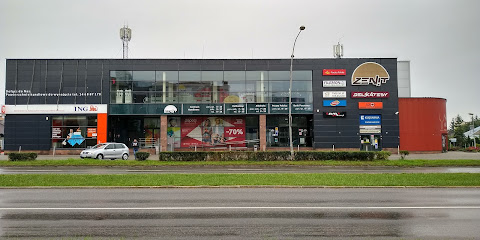
Pepegi
Discover unbeatable deals and a remarkable shopping experience at Pepegi, Tarnów's premier outlet mall with a variety of brands.
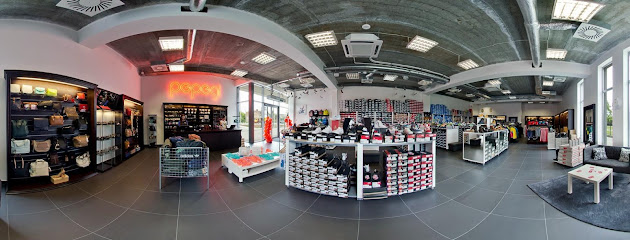
SAJBAZAR
Explore Sajbazar in Tarnów for exquisite costume jewelry that beautifully captures local artistry and culture, perfect for unique souvenirs.
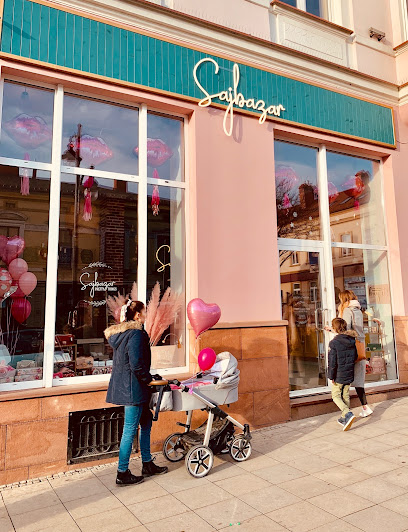
Action Tarnów
Explore Action Tarnów for a unique shopping experience, featuring DIY supplies, home goods, and unforgettable gifts in the heart of Tarnów.

Drogeria Natura
Explore an extensive range of beauty products, cosmetics, and health supplies at Drogeria Natura in Tarnów, Poland, your one-stop beauty shop.
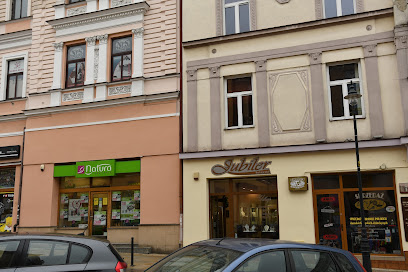
Yatta.pl Tarnów - sklep z mangą i komiksami
Discover the exciting universe of manga and comics at Yatta.pl Tarnów - a must-visit comic book store for every enthusiast.
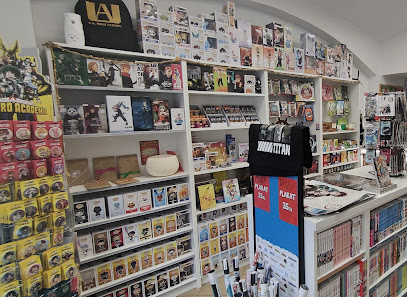
ShopPL - balony z helem & Butle z helem & Tymczasowe zmywalne tatuaże - Tarnów
Discover ShopPL in Tarnów for all your party essentials, from vibrant helium balloons to fun temporary tattoos, making every celebration unforgettable.
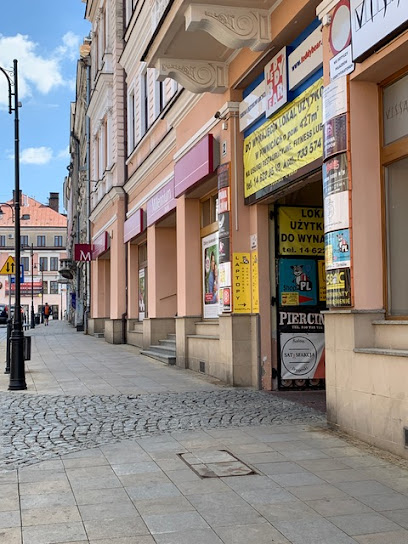
Sklep Patriotyczny Tarnów
Explore Polish culture and style at Sklep Patriotyczny, a unique clothing store in Tarnów that blends tradition with contemporary fashion.
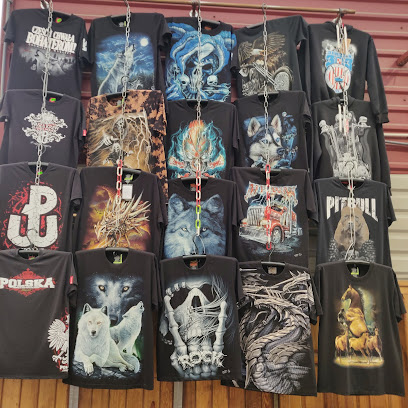
Realmen
Explore Realmen in Tarnów for exceptional men's fashion that blends style and quality, making it a go-to destination for trendy apparel.
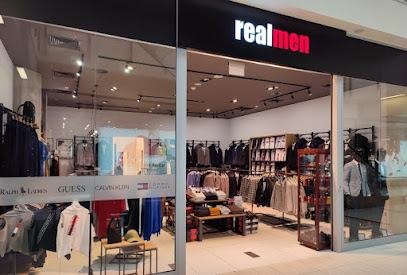
Tedi
Discover Tedi in Tarnów for a wide range of affordable home goods, unique souvenirs, and a welcoming shopping atmosphere.
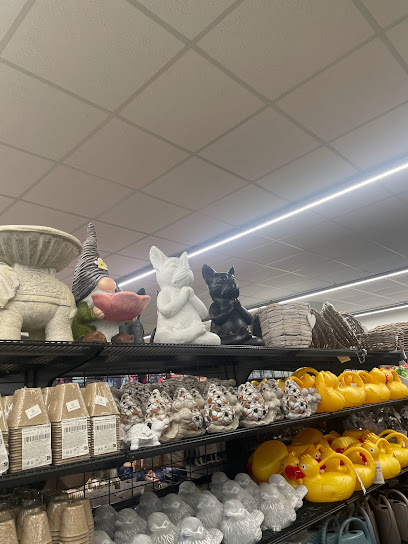
Okazja od 90gr - Sklep
Explore the vibrant Okazja od 90gr - Sklep in Tarnów for unique gifts and local crafts that capture the spirit of Poland.
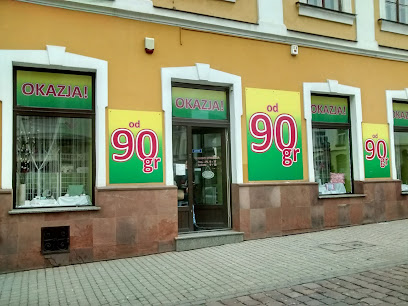
Quiosque - dresses & clothing
Explore Quiosque in Tarnów for a stunning selection of women's fashion, from elegant dresses to trendy accessories, all in a charming boutique setting.
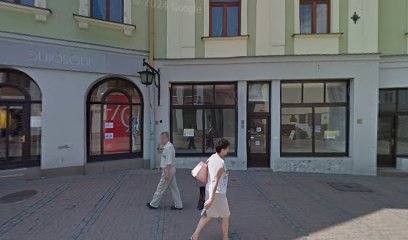
Essential bars & hidden hideouts
Pub Śródmieście
Experience the vibrant flavors of Tarnów at Pub Śródmieście – a brewpub for beer lovers and food enthusiasts alike.
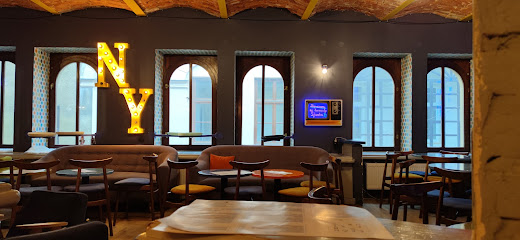
Browar Tarnowski
Experience the rich brewing culture of Tarnów at Browar Tarnowski, where traditional flavors meet modern tastes in a vibrant pub atmosphere.
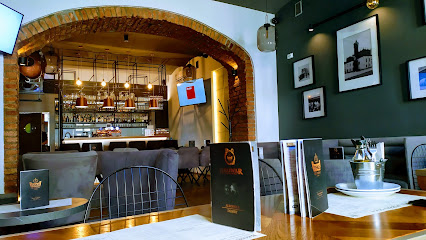
Irish Pub
Discover the vibrant atmosphere of Tarnów's Irish Pub, where authentic cuisine meets a diverse selection of craft beers in a welcoming brewpub setting.
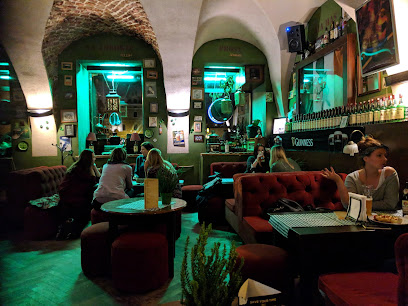
Pilipalili
Discover the vibrant cocktail scene at Pilipalili in Tarnów, where innovative mixology meets a cozy, inviting atmosphere.
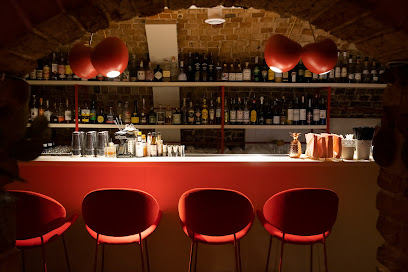
Whiplash Music Bar
Experience live music, delicious drinks, and a vibrant atmosphere at Whiplash Music Bar in Tarnów, where the local scene comes alive.
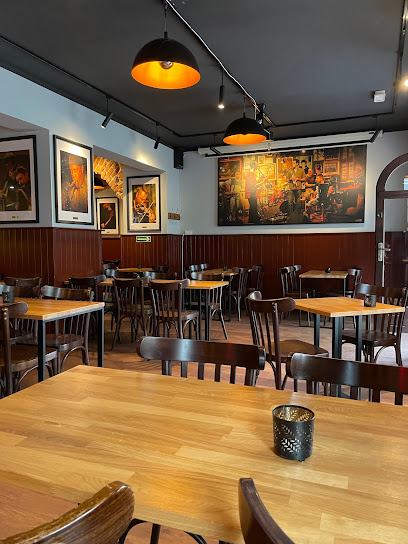
Hell's Kuźnia
Experience the charm of Tarnów at Hell's Kuźnia, a brewpub offering exceptional craft beers and a vibrant atmosphere for all visitors.
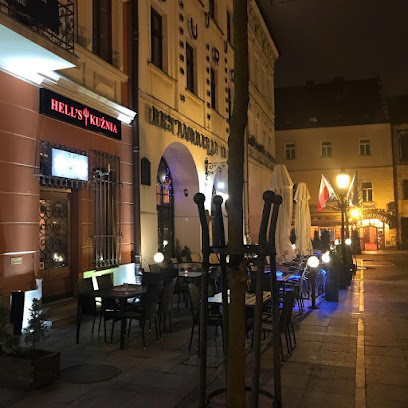
PUB Przepraszam
Discover the vibrant atmosphere of PUB Przepraszam, a charming bar in Tarnów, offering a diverse drink selection and a cozy setting for all.
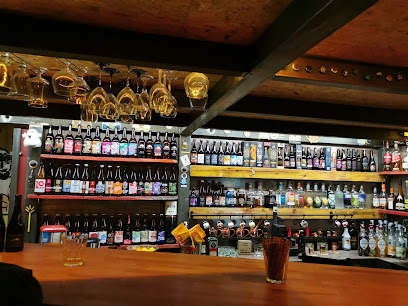
Chili Pub
Discover the vibrant atmosphere of Chili Pub in Tarnów, where craft beers and delicious food meet local culture in a lively brewpub setting.
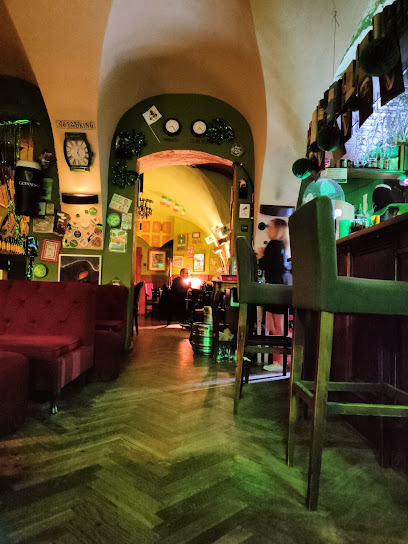
ALERT PUB Tarnów
Discover the vibrant brewpub culture at ALERT PUB in Tarnów, where craft beer meets a cozy atmosphere and local flavors.
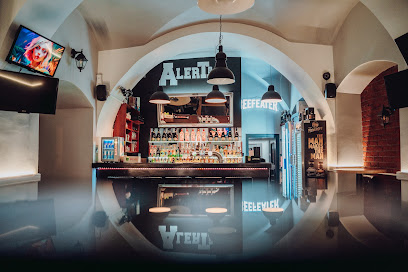
Kasar
Experience the lively atmosphere and affordable drinks at Kasar, Tarnów's must-visit pub for locals and tourists alike.
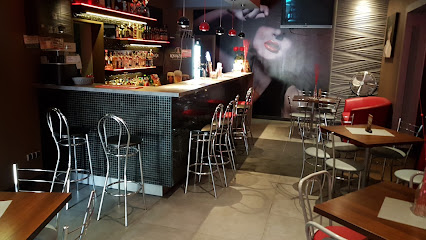
GAME BAR Tarnów - bar inny niż wszystkie!
Experience the unique blend of gaming and socializing at GAME BAR Tarnów, where every visit is a new adventure in fun.
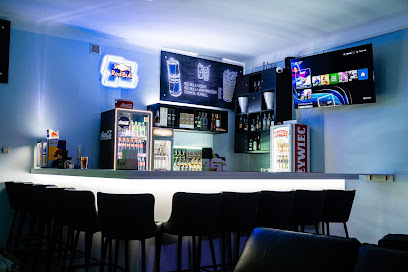
Bar Stare Karo
Experience the vibrant nightlife and local flavors at Bar Stare Karo, Tarnów's favorite pub for socializing and relaxation.
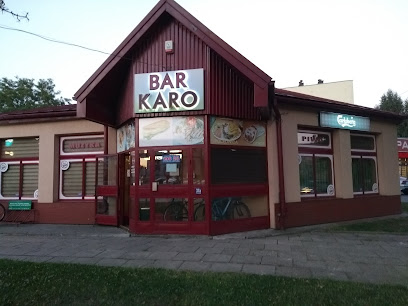
Meksyk. Drink - Bar. Teliszewski R.
Experience the vibrant nightlife of Tarnów at Teliszewski R., a cozy bar offering a diverse drink selection and a lively atmosphere.
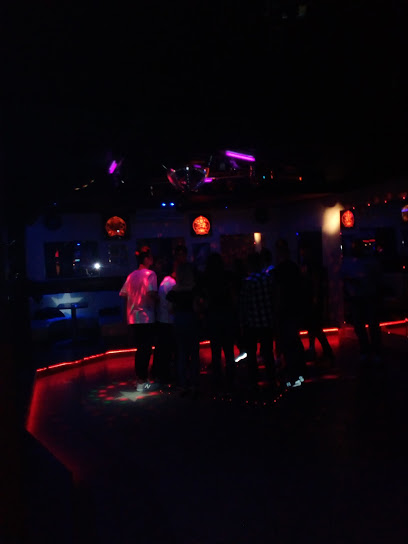
Baba Jaga Pub/ Kawiarnia
Experience the magic of Baba Jaga Pub in Tarnów, where folklore meets friendly hospitality and delightful local flavors.
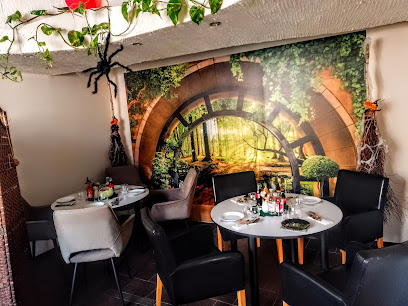
Local Phrases
-
- HelloCześć
[cheshch] - GoodbyeDo widzenia
[do veedzenya] - YesTak
[tak] - NoNie
[nye] - Please/You're welcomeProszę
[prosheh] - Thank youDziękuję
[jen-koo-yeh] - Excuse me/SorryPrzepraszam
[pshe-pra-sham] - How are you?Jak się masz?
[yak sheh mahsh] - Fine. And you?Dobrze. A ty?
[doh-bzheh. ah tee] - Do you speak English?Czy mówisz po angielsku?
[chi moovish poh an-gyel-skoo] - I don't understandNie rozumiem
[nye roh-zoo-myem]
- HelloCześć
-
- I'd like to see the menu, pleaseChciałbym zobaczyć menu, proszę
[h-chyawbim zoh-bah-chich meh-noo, pro-sheh] - I don't eat meatNie jem mięsa
[nye yem myen-sa] - Cheers!Na zdrowie!
[nah zdroh-vee-eh] - I would like to pay, pleaseChciałbym zapłacić, proszę
[h-chyawbim zah-plah-cheech, pro-sheh]
- I'd like to see the menu, pleaseChciałbym zobaczyć menu, proszę
-
- Help!Pomocy!
[poh-mo-tsi] - Go away!Idź sobie!
[eej soh-b-yeh] - Call the Police!Zadzwoń po policję!
[zahd-zvon poh po-leet-syeh] - Call a doctor!Zadzwoń po lekarza!
[zahd-zvon poh leh-kar-zah] - I'm lostZgubiłem się
[zgoo-bee-wem sheh] - I'm illJestem chory
[yes-tem hoh-ri]
- Help!Pomocy!
-
- I'd like to buy...Chciałbym kupić...
[h-chyawbim koo-peech] - I'm just lookingTylko się rozglądam
[til-koh sheh rohz-gwah-dahm] - How much is it?Ile to kosztuje?
[ee-leh to kohs-too-yeh] - That's too expensiveTo jest za drogie
[to yest zah dro-gyeh] - Can you lower the price?Czy możesz obniżyć cenę?
[chi mo-zhesh ohb-nee-zhich cheh-neh]
- I'd like to buy...Chciałbym kupić...
-
- What time is it?Która jest godzina?
[k-too-rah yest goh-dzee-nah] - It's one o'clockJest pierwsza
[yesst pyerv-sha] - Half past (10)Pół do dziesiątej
[poow doh dzyeh-shoo-yent-ey] - MorningRano
[rah-no] - AfternoonPopołudnie
[po-poo-wood-nyeh] - EveningWieczór
[vyeh-choor] - YesterdayWczoraj
[v-cho-rye] - TodayDzisiaj
[jee-shee-ay] - TomorrowJutro
[yoo-tro] - 1Jeden
[yeh-den] - 2Dwa
[d-vah] - 3Trzy
[tshih] - 4Cztery
[ch-teh-ri] - 5Pięć
[pyehnch] - 6Sześć
[sheshch] - 7Siedem
[syeh-dem] - 8Osiem
[oh-syem] - 9Dziewięć
[jyeh-vyehnch] - 10Dziesięć
[dzyeh-shyehnch]
- What time is it?Która jest godzina?
-
- Where's a/the...?Gdzie jest...
[g-dyeh yest] - What's the address?Jaki jest adres?
[yah-kee yest ah-dress] - Can you show me (on the map)?Czy możesz mi pokazać (na mapie)?
[chi mo-zhesh mee poh-kah-zach (nah mah-pee-eh)] - When's the next (bus)?Kiedy jest następny (autobus)?
[kyeh-dy yest nah-step-neh (ow-toh-boos)] - A ticket (to ....)Bilet (do ....)
[bee-let (doh)]
- Where's a/the...?Gdzie jest...
History of Tarnow
-
Tarnow was founded in 1330 by King Władysław I Łokietek, who granted the area to Spytko of Melsztyn, a prominent Polish nobleman. The city was strategically located on trade routes, which facilitated its growth and importance in the region.
-
Following the First Partition of Poland in 1772, Tarnow became part of the Austrian Empire. This period saw significant infrastructural development, including the construction of the railway line connecting Tarnow to Krakow and Lviv, which boosted the city’s economic prosperity.
-
During World War II, Tarnow was the site of an important resistance movement against the Nazi occupation. The Tarnow Uprising, which began on August 31, 1939, was one of the first organized acts of resistance in Poland. Despite initial successes, the uprising was ultimately suppressed by German forces.
-
Tarnow had a significant Jewish community before World War II, constituting about 45% of the city's population. The Jewish quarter was a vibrant part of Tarnow, with synagogues, schools, and cultural institutions. Tragically, during the Holocaust, most of Tarnow’s Jewish residents were deported to concentration camps or killed in mass executions.
-
After World War II, Tarnow underwent extensive reconstruction to repair the damage caused by the war. The city’s historical buildings, including the Renaissance Town Hall and the Gothic Cathedral of the Nativity of the Virgin Mary, were carefully restored, preserving Tarnow’s architectural heritage.
-
Today, Tarnow is a vibrant city that blends historical charm with modern amenities. It is known for its well-preserved medieval architecture, bustling market square, and cultural festivals. Tarnow continues to celebrate its diverse heritage, making it a fascinating destination for history enthusiasts and travelers alike.
Tarnow Essentials
-
Tarnow is located in the southeastern part of Poland, about 80 kilometers east of Krakow. The nearest major airport is Krakow John Paul II International Airport (KRK). From the airport, you can take a direct train or bus to Tarnow; the journey typically takes around 1.5 to 2 hours. Alternatively, you can drive or hire a taxi for a more flexible travel option.
-
Tarnow has a well-connected public transportation system, including buses and taxis. The local bus network is extensive and covers most areas within the city. Taxis are also readily available and can be hailed on the street or booked via phone or app. For those who prefer to drive, car rental services are available, though parking may be limited in the city center. Bicycles can also be rented for a more eco-friendly way to explore the city.
-
The official currency in Poland is the Polish Zloty (PLN). Credit and debit cards are widely accepted in most hotels, restaurants, and shops in Tarnow. However, it is advisable to carry some cash, especially when visiting small local markets or rural areas. ATMs are abundant throughout the city, and currency exchange offices are available for those who need to exchange foreign currencies.
-
Tarnow is generally a safe city for tourists, but like any travel destination, it is essential to take standard precautions. Avoid walking alone at night in poorly lit areas and keep an eye on your belongings in crowded places. While Tarnow has a low crime rate, it is always best to stay vigilant. The Old Town and the city center are safe, but be cautious in less populated areas during late hours.
-
In case of an emergency, dial 112 for immediate assistance. This number connects you to all emergency services, including police, fire, and medical aid. Tarnow has several hospitals and clinics for medical emergencies. It is recommended to have travel insurance that covers medical emergencies. Pharmacies are widespread and can provide over-the-counter medications for minor health issues.
-
Fashion: Do wear comfortable and casual clothing, but dress modestly when visiting religious sites. Avoid overly revealing attire. Religion: Do respect local customs and traditions. When visiting churches, cover your head and shoulders. Public Transport: Do validate your bus ticket immediately upon boarding. Don't talk loudly or disturb other passengers. Greetings: Do greet people with a handshake and make eye contact. A warm 'Dzien dobry' (Good day) is appreciated. Eating & Drinking: Do try local delicacies like pierogi and bigos. Don't refuse hospitality, as it is considered impolite.
-
To experience Tarnow like a local, visit the local markets such as the Tarnow Market Square, where you can buy fresh produce and traditional Polish goods. Engage with locals, who are often friendly and willing to share stories about the city's history and culture. Don't miss exploring the Tarnow Cathedral and the Renaissance Town Hall. For a unique experience, take a stroll through the Jewish Quarter and visit the old synagogue ruins.
Trending Landmark in Tarnow
-
Strzelecki Park
-
Tarnowski Castle Ruins
-
Rynek Główny w Tarnowie
-
Cathedral Church. Holy Family
-
Mausoleum of Murat Pasha
-
Muzeum Ratusz – Galeria Sztuki Dawnej, Oddział Muzeum Ziemi Tarnowskiej (dawniej Muzeum Okręgowe w Tarnowie)
-
Lasek Lipie
-
Fountain - Solar System
-
Brama Seklerska w Tarnowie
-
Bima Old Synagogue
-
Plac Ofiar Stalinizmu
-
BWA Tarnów
-
Muzeum Ziemi Tarnowskiej (dawniej Muzeum Okręgowe w Tarnowie)
-
Muzeum Diecezjalne w Tarnowie
-
Ławeczka Poetów w Tarnowie
Nearby Cities to Tarnow
-
Things To Do in Rzeszow
-
Things To Do in Krakow
-
Things To Do in Kielce
-
Things To Do in Zakopane
-
Things To Do in Prešov
-
Things To Do in Poprad
-
Things To Do in Bielsko-Biala
-
Things To Do in Košice
-
Things To Do in Radom
-
Things To Do in Czestochowa
-
Things To Do in Gliwice
-
Things To Do in Lublin
-
Things To Do in Uzhhorod
-
Things To Do in Martin
-
Things To Do in Žilina










